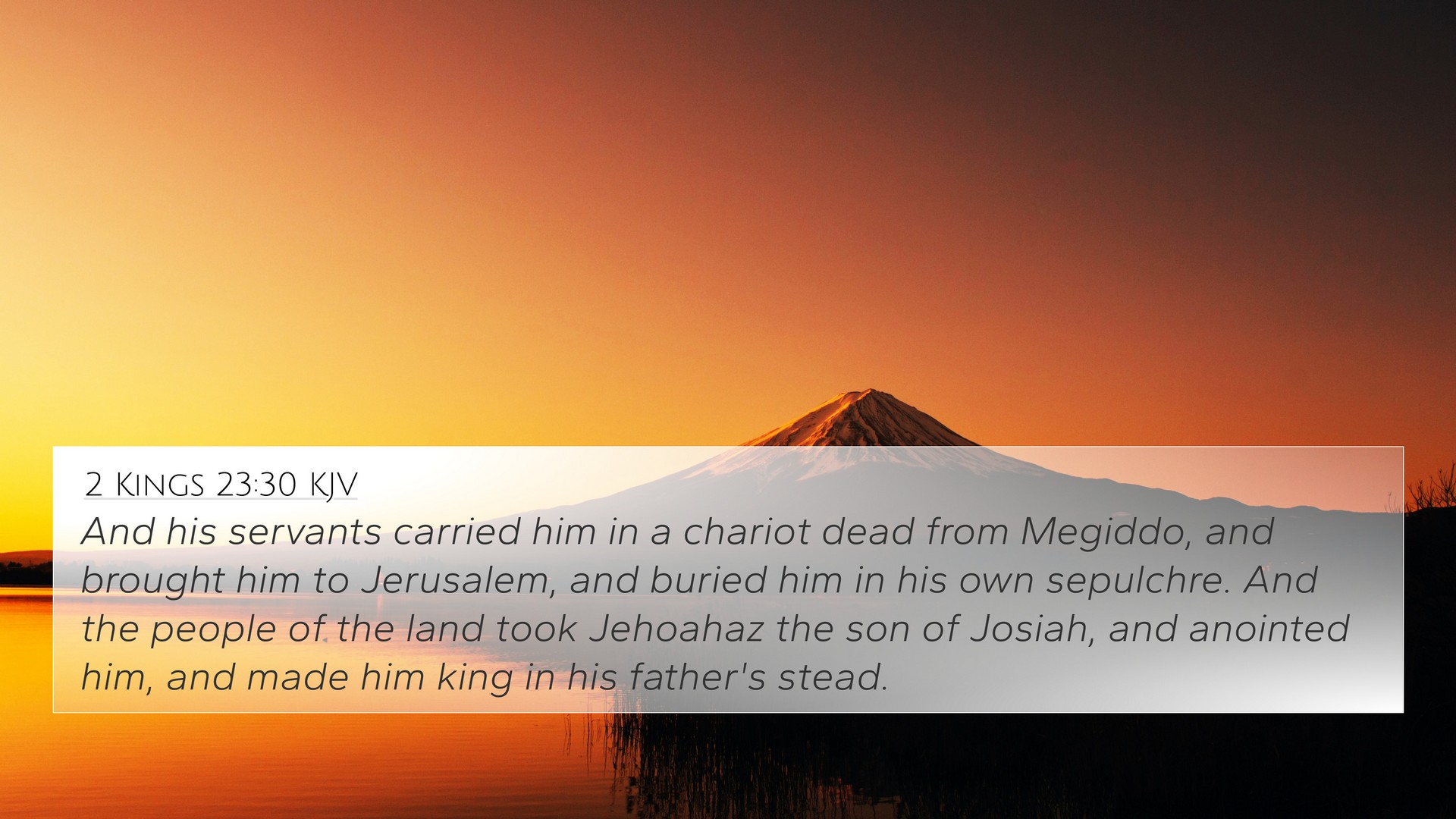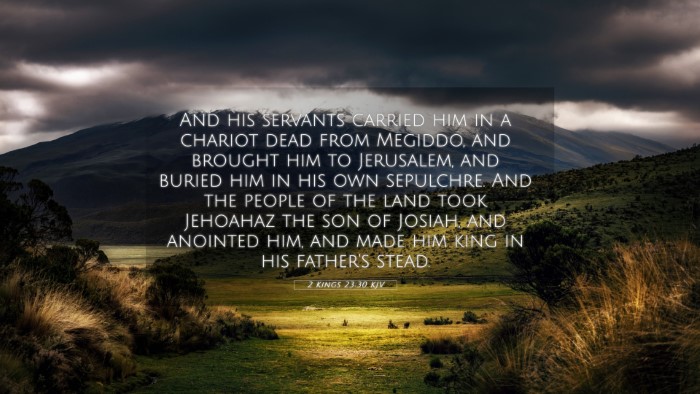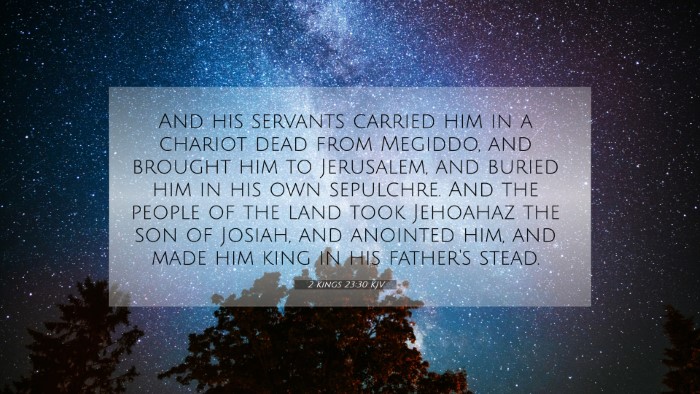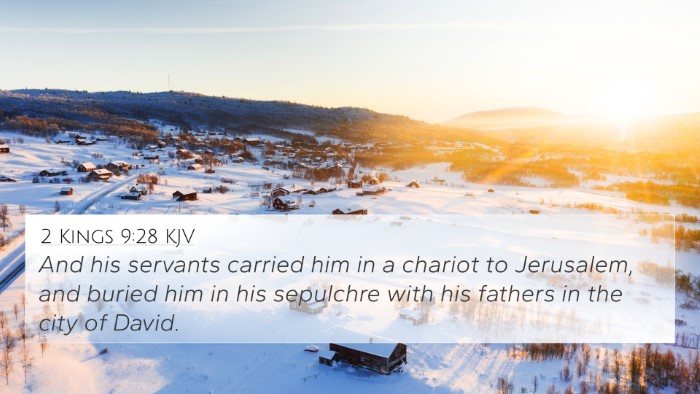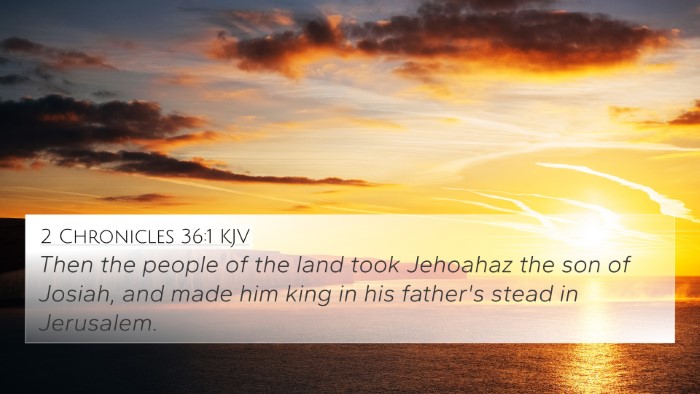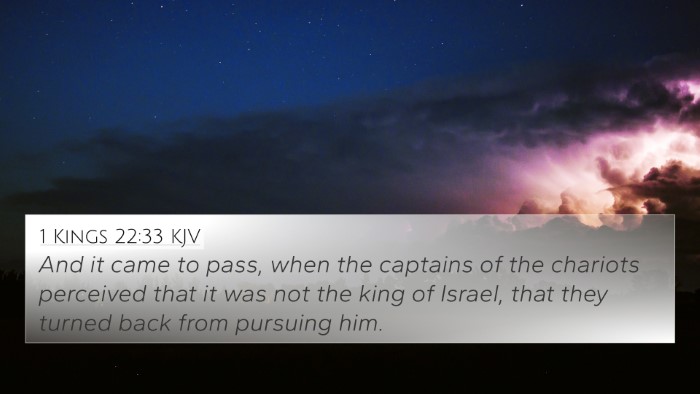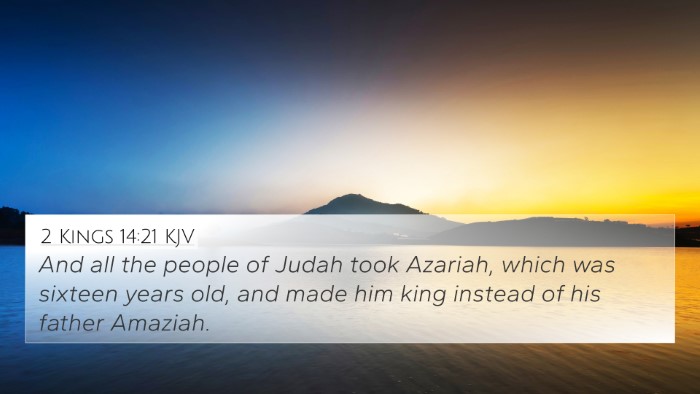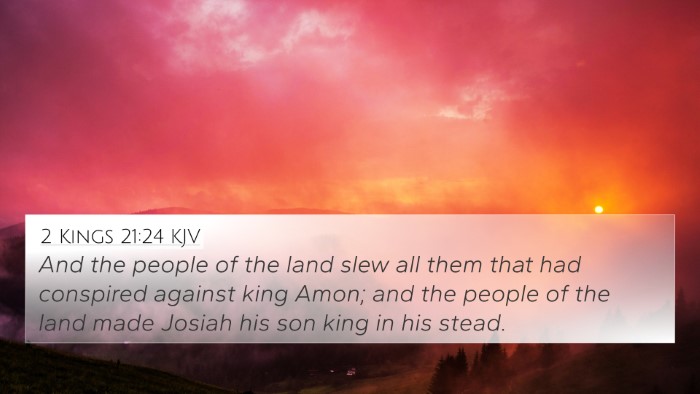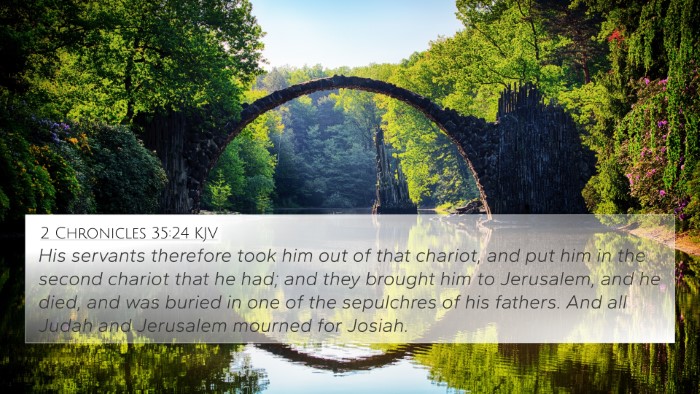Understanding 2 Kings 23:30
In this verse, we see the conclusion of King Josiah's reign, characterized by significant reforms and a return to true worship. Here is a summary of the meaning of 2 Kings 23:30 based on esteemed public domain commentaries such as those by Matthew Henry, Albert Barnes, and Adam Clarke.
Verse Context
2 Kings 23:30: "And his servants carried him in a chariot dead from Megiddo, and brought him to Jerusalem, and buried him in his own sepulcher. And the people of the land took Jehoahaz the son of Josiah, and anointed him, and made him king in his father's stead."
Summary of Insights
The death of King Josiah marks a critical moment in the history of Judah. His reign was noted for its religious reforms, but his untimely death signaled a return to turmoil. The commentaries provide the following insights:
-
Matthew Henry:
Henry reflects on Josiah's noble efforts to restore true worship and cleanse the land of idolatry. His demise at Megiddo highlights the tragic consequences of engaging in conflicts against greater powers, representing both a failure of wisdom and a poignant reminder of the perils of the human condition.
-
Albert Barnes:
Barnes emphasizes the swiftness of Josiah's death and the profound mourning it evoked among the people. He points out that the anointing of Jehoahaz demonstrates the people's desire for continuity in leadership, yet it also heralds a return to instability and idolatry as they abandon the reforms established by Josiah.
-
Adam Clarke:
Clarke delves into the significance of Megiddo as a battleground, symbolizing the spiritual warfare that characterizes Judah's history. He notes the prophetic undertones surrounding Josiah's death, with echoes of past warnings about the consequences of disobedience. Clarke underscores that the aftermath of Josiah's reign set the stage for Judah's decline.
Biblical Cross References
To further understand the themes in 2 Kings 23:30, we can explore several cross-references that illuminate its significance:
- 2 Chronicles 35:20-24 - Details Josiah's final battle.
- Zephaniah 1:1 - Prophecy during Josiah's reign.
- Jeremiah 22:10-12 - Mourning for Josiah.
- Hosea 1:3 - Parallel themes of leadership and idolatry.
- 1 Kings 13:2 - Prophecy concerning the death of the king.
- 2 Kings 21:2-16 - Idolatry in Judah leading up to Josiah.
- Jeremiah 3:6-10 - Judah's unfaithfulness compared to Israel.
Thematic Connections
2 Kings 23:30 reveals several overarching themes:
- The Consequences of Sin: Josiah's death can be seen as the result of the persistent idolatry and disobedience of the people.
- The Role of Leadership: Josiah's efforts to lead the nation back to God were significant but short-lived as instability returned.
- Divine Sovereignty: The unfolding events surrounding Josiah’s death suggest a divine plan despite ongoing rebellion among God's people.
Conclusion
In conclusion, 2 Kings 23:30 serves as a pivotal moment in biblical history that provides insights into the complexities of leadership, divine judgment, and the consequences of straying from God's ways. The death of a reformer leads to the rise of another king, evoking reflections on continuity and the cyclical nature of faithfulness and unfaithfulness in Israel's history.
For those interested in understanding the connections between Bible verses, 2 Kings 23:30 encourages a deep dive into resources such as a Bible concordance or a Bible reference guide, allowing for comprehensive cross-referencing and thematic studies. Utilizing cross-referencing techniques can enhance one's ability to draw parallels and connections that deepen understanding of scriptural contexts.
